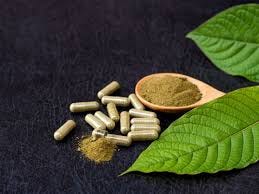Kratom Use In Michigan
As use of kratom increases, so does awareness and debates of regulation.
Kratom use is not new. In fact, its use dates back centuries in Asia. Kratom, which is a tropical tree native to southeast Asia, has been used in Michigan for a couple of decades but has gained more popularity over the last several years.
When kratom leaves are crushed and consumed, it produces stimulant-like effects in low doses and opioid-like effects in higher doses. It can be smoked, placed into capsules, or brewed in tea. Since it is a natural plant, many users are misguided into thinking it is harmless. And since it is not controlled or regulated by the federal government, it has become a legal way for many to cop a buzz or substitute it for harder drugs. It has been used as a sort of self-prescribed replacement therapy for some users, and there have even been reports of individuals using it to treat chronic pain.
But just because something is natural and legal doesn’t mean it’s safe or doesn’t come with risks. For one, kratom is a psychoactive substance that can lead to addiction. Some side effects include agitation, drowsiness, vomiting, confusion, and seizures. It can also cause respiratory suppression. The most alarming concern with kratom is that though it may seem to be a safer alternative to opioids, it can lead to overdose and death.
One of the issues with kratom is that since it is not regulated in many states, including Michigan, it is unpredictable. Users don’t know how potent a batch of kratom is, as its active ingredients vary by plant. Kratom can contain two major psychoactive ingredients: mitragynine and 7-hydroxymytraynine. 7-hydroxymytraynine is viewed as more potent and addictive, and since it has been increasingly showing up more in products, two metro-Detroit communities are debating regulating kratom, according to the Detroit News. The News shared that the two communities – Warren and Clinton Township - are concerned that kratom is accessible to people under 21. 7-hydroxymytraynine acts on opioid receptors in the brain, producing similar effects to other powerful opioids. Many people are now calling it “gas station heroin.”
Though it is legal in Michigan to buy, several states have banned kratom. Several other states have passed bills to regulate it through the Kratom Consumer Protection Act (KCPA), which can set age requirements, labeling requirements, and quality control standards. As of right now, regulation is not being considered at the state level in Michigan.
Personally, I have never used kratom, but I know people that have. One person I know used it as a mode of harm reduction, choosing to use it instead of heroin. Another person said they used it as an energy booster, kind of like having a coffee in the morning to get you going. And I also talked to a person a while ago that said they used it while on probation because standard drug tests do not test for kratom; it has to be sent to a lab for a specialized test.
My opinion is that, inherently, kratom is not necessarily “bad.” If someone is using kratom instead of fentanyl, is that a step in the right direction? If a person uses it as a mild stimulant occasionally in the mornings, who am I to tell them different? But the problem is the kratom market right now in most states is like the wild west. An 18-year-old can go into a store and buy kratom thinking that since it is legal and natural there is no risk. And for people like me who are more genetically predisposed to developing addiction, it can act as a gateway drug, or worse, take the life of someone that doesn’t know how much kratom to use. Recently, the FDA sent a warning letter to companies illegally marketing products that contain 7-hydroxymytraynin, expressing concerns about products that have the alkaloid concentrated in tablets, gummies, and drink mixes.
I can’t tell anyone what to do, and I am the last person that can judge. My only hope is that individuals know the risks when they make the choice to use kratom. Like opioids, kratom comes with similar side effects and can cause withdrawal and overdose. I believe within the next decade more states will ban it or at least pass KCPA bills to regulate it. That is probably the best course of action right now.




